Last Field Marshal
Dmitry Alekseevich Milyutin (1816 – 1912)
It is to him that Russia owes the introduction of universal military service. For its time, it was a real revolution in the principles of manning the army. Before Milutin, the Russian army was a caste; it was based on recruits - soldiers recruited from townspeople and peasants by lot. Now everyone was called into it - regardless of origin, nobility and wealth: the defense of the Fatherland became a truly sacred duty of everyone. However, Field Marshal became famous not only for this ...
A frak or mundir?
Dmitry Milyutin was born 28 June (10 July) 1816, in Moscow. On the paternal side, he belonged to middle-class nobles, whose surname originated from the popular Serbian name Milutin. The father of the future field marshal, Alexei Mikhailovich, inherited the factory and estates, burdened with huge debts, with which he unsuccessfully tried to pay his whole life. Mother, Elizabeth Dmitrievna, nee Kiseleva, came from an old noble family, the uncle of Dmitry Milyutin was General of Infantry Pavel Dmitrievich Kiselev - a member of the State Council, the Minister of State Property, and later the Russian ambassador to France.
Alexey Mikhailovich Milyutin was interested in the exact sciences, was a member of the Moscow Society of Nature Testers at the university, was the author of a number of books and articles, and Elizaveta Dmitrievna was well aware of foreign and Russian literature, she loved painting and music. Since 1829, Dmitry studied at the Moscow University Noble Boarding School, which was not inferior to the Tsarskoye Selo Lyceum, and Pavel Dmitrievich Kiselev contributed to the tuition fees. By this time, the first scientific work of the future reformer of the Russian army. He compiled the Experience of Literary Dictionary and synchronic tables on stories, and at the age of 14 – 15, he wrote “A Guide to Survey of Plans Using Mathematics,” which won positive reviews in two reputable journals.
In 1832, Dmitry Milyutin graduated from boarding school, becoming eligible for the tenth grade of the Table of Ranks and a silver medal for academic excellence. Before him stood a momentous question for a young nobleman: a tail coat or uniform, state or military path? In 1833, he went to St. Petersburg and, on the advice of his uncle, entered as a non-commissioned officer in the 1 Guards Artillery Brigade. Ahead of him waited 50 years of military service. Six months later, Milutin became an ensign, but the daily steps, under the supervision of the great princes, exhausted and dulled so much that he even began to think about changing his profession. Fortunately, in 1835, he managed to enroll in the Imperial Military Academy, which trained general staff officers and teachers for military schools.
At the end of 1836, Dmitry Milyutin was released from the academy with a silver medal (at the final exams he received 552 points from 560 possible), was promoted to lieutenant and was assigned to the Guards General Staff. But one of the salaries of the guardsman was clearly lacking for a decent living in the capital, even if he, as Dmitry Alekseevich did, and avoided the entertainment of the golden officer youth. So we had to constantly earn money by translations and articles in various periodicals.
PROFESSOR OF THE MILITARY ACADEMY
In 1839, Milutin, at his request, was sent to the Caucasus. Service in the Separate Caucasian Corps was at that time not just a necessary military practice, but also a significant step for a successful career. Milyutin developed a series of operations against the Highlanders, he himself participated in the march on the village of Ahulgo - the then capital of Shamil. In this expedition, he was wounded, but remained in the ranks.
The following year, Milutin was appointed to the position of quartermaster of the 3 Guards Infantry Division, and in 1843, chief quartermaster of the troops of the Caucasian Line and the Black Sea. In 1845, on the recommendation of Prince Alexander Baryatinsky, who was close to the heir to the throne, he was recalled to the Minister of War, and at the same time Milyutin was elected a professor at the Military Academy. In the description given to him by Baryatinsky, it was noted that he was zealous, of excellent abilities and intelligence, of exemplary morality, was economical in the economy.
Do not throw Milutin and scientific studies. In 1847 – 1848, his two-volume work “The First Experiments of Military Statistics” was published, and in 1852 – 1853, the professionally executed “History of the War of Russia with France in the Reign of Emperor Paul I in 1799” was published in five volumes.
The last work was prepared by two informative articles written by him back in 1840's: “A.V. Suvorov as a commander "and" Russian commanders of the XVIII century. " The “History of the War of Russia with Francia”, immediately after the publication was translated into German and French, brought to the author the Demidov Prize of the St. Petersburg Academy of Sciences. Soon after, he was elected a corresponding member of the academy.
In 1854, Milyutin, already a major general, became the clerk of the Special Committee on measures to protect the shores of the Baltic Sea, which was formed under the chairmanship of the heir to the throne, Grand Duke Alexander Nikolayevich. So the service brought the future Tsar-reformer Alexander II and one of his most effective associates in developing transformations ...
NOTE MILYUTINA
In December, the 1855 of the year, when the Crimean War was so hard for Russia, Minister of War Vasily Dolgorukov asked Milutin to write a note on the situation in the army. He fulfilled the assignment, noting that the number of armed forces of the Russian Empire is large, but the base of the troops is made up of untrained recruits and militias, which lack competent officers, which makes the new kits become meaningless.
Seeing a rookie. Hood I.E. Repin. Xnumx
Milyutin wrote that a further increase in the army is impossible for economic reasons, since the industry is unable to provide it with everything necessary, and the import weapons from abroad is difficult due to the boycott declared by Russia by European countries. Obvious were the problems associated with the lack of gunpowder, food, rifles and artillery, not to mention the poor state of transport routes. The bitter conclusions of the note largely influenced the decision of the members of the meeting and the youngest Tsar Alexander II to begin peace negotiations (the Paris Peace Treaty was signed in March 1856 of the year).
In 1856, Milyutin was again sent to the Caucasus, where he occupied the post of chief of staff of the Separate Caucasian Corps (soon reformed into the Caucasian army), but already in 1860, the emperor appointed him comrade (deputy) of the war minister. The new head of the military department, Nikolai Sukhozanet, seeing Milyutin as a real competitor, tried to remove his deputy from significant matters, and then Dmitry Alekseevich even had thoughts of resigning to study exclusively in teaching and research activities. Everything changed suddenly. The dry run was sent to Poland, and the ministry was put in charge of Milutin.
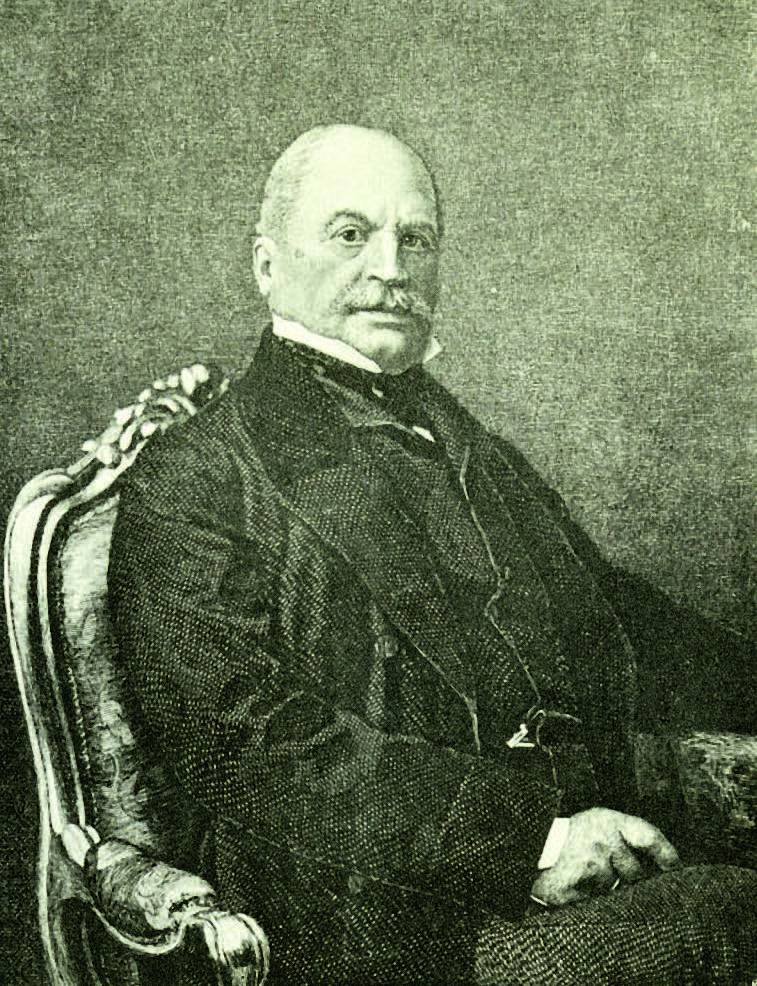
Count Pavel Dmitrievich Kiselev (1788 – 1872) - General of Infantry, Minister of State Property in 1837 – 1856, Uncle DA Milutina
His first steps in the new post were met with universal approval: the number of ministry officials was reduced by a thousand people, and the number of outgoing papers by 45%.
ON THE WAY TO THE NEW ARMY
15 January 1862 (less than two months after taking up a high position) Milyutin presented Alexander II the most respected report, which, in fact, was a program of broad reforms in the Russian army. The report contained 10 points: the number of troops, their recruitment, staffing and management, drill, troop personnel, military-judicial unit, provisional supplies, military-medical unit, artillery, engineering units.
The preparation of a military reform plan required from Milutin not just the exertion of forces (he worked on 16 hours a day on the report), but also considerable courage. The minister encroached upon the archaic and much compromised itself in the Crimean War, but still a legendary estate-patriarchal army, fanned by heroic legends, which remembered both the Ochakov times, and Borodino and the surrender of Paris. However, Milutin decided on this risky step. Or rather, on a number of steps, since the large-scale reform of the Russian armed forces under his leadership continued for almost 14 years.
Training recruits in Nikolaev time. Figure A. Vasiliev from the book of N. Schilder "Emperor Nicholas I. His life and reign"
First of all, he proceeded from the principle of the greatest reduction in the size of the army in peacetime, with the possibility of maximally increasing it in the event of war. Milyutin was well aware that no one would allow him to immediately change the recruitment system, and therefore offered to bring the number of recruits annually to 125 thousand, subject to the dismissal of soldiers “on leave” in the seventh or eighth year of service. As a result, over the course of seven years, the size of the army has decreased by 450 – 500 thousand people, but a reserve of trained reserve has been formed in 750 thousand people. It is not difficult to notice that formally it was not a reduction in the length of service, but merely the provision of temporary “leave” to the soldiers — deception, so to speak, for the good of the cause.
JUNKER AND MILITARY DISTRICTS
No less acute was the issue of officer training. Back in 1840, Milutin wrote:
“Our officers are formed completely like parrots. Prior to their production, they are kept in a cage, and incessantly interpret to them: “Ass, left around!”, And ass repeats: “Left around”. When the ass reaches to the point that it will firmly memorize all these words and, moreover, will be able to stick on one paw ... they put on epaulets, open the cage, and he flies out of it with joy, with hatred for his cage and his former mentors. "
In the middle of 1860, at the request of Milyutin, military schools were subordinated to the Military Ministry. Cadet corps, renamed military schools, became secondary specialized educational institutions. Their graduates entered military schools that trained around 600 officers each year. This was clearly not enough to replenish the commanding staff of the army, and it was decided to create cadet schools, when entering which required knowledge in the amount of approximately four classes of ordinary gymnasium. These schools have released another order of officers 1500 a year. Higher military education was represented by the Artillery, Engineering and Military Law Academies, as well as the Academy of the General Staff (formerly the Imperial Military Academy).
On the basis of the new charter for the combat infantry service, published in the middle of 1860, the training of soldiers changed. Milyutin revived the Suvorov principle - to pay attention only to what is really necessary for ordinary soldiers to do their job: physical and combat training, shooting, and tactical tricks. In order to spread literacy among soldiers, soldiers' schools were organized, regimental and company libraries were created, and special periodicals appeared - “Soldier Talk” and “Reading for Soldiers”.
Talks about the need to re-equip the infantry were still from the end of the 1850's. At first it was about reworking old rifles in a new way, and only after 10 years, at the end of 1860-s, it was decided to give preference to the Berdan rifle No. 2.
A little earlier, by the “Regulations” of the 1864 of the Year, Russia was divided into 15 military districts. District administrations (artillery, engineering, quartermaster and medical) were subordinate, on the one hand, to the district commander, and on the other, to the respective main directorates of the Military Ministry. This system eliminated the excessive centralization of command and control, provided operational leadership in the field and the possibility of rapid mobilization of the armed forces.
The next urgent step in the reorganization of the army was to be the introduction of universal military service, as well as enhanced training for officers and higher spending on the material support of the army.
However, after Dmitry Karakozov was shot at the 4 monarch on April 1866, the position of the conservatives strengthened noticeably. However, it was not only an attempt on the king. It must be borne in mind that every decision to reorganize the armed forces required a number of innovations. Thus, the creation of military districts entailed the "Regulations on the establishment of quartermaster warehouses", "Regulations on the management of local troops", "Regulations on the organization of the fortress artillery", "Regulations on the management of the cavalry inspector general", "Regulations on the organization of artillery parks" and etc. And each such change inevitably aggravated the struggle of the minister-reformer with his opponents.
MILITARY MINISTERS OF THE RUSSIAN EMPIRE
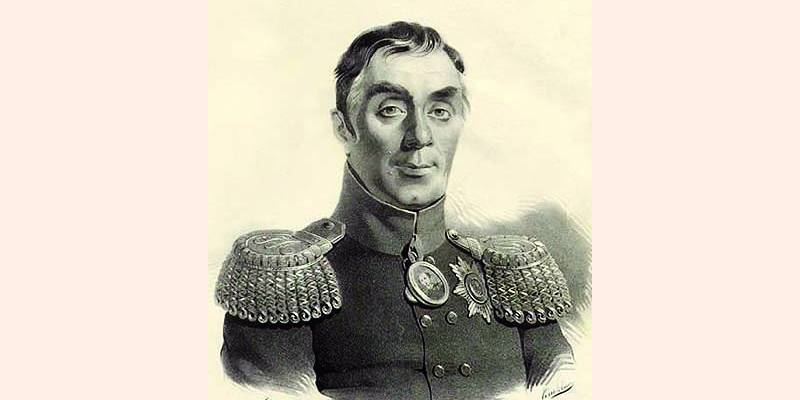
A.A. Arakcheev
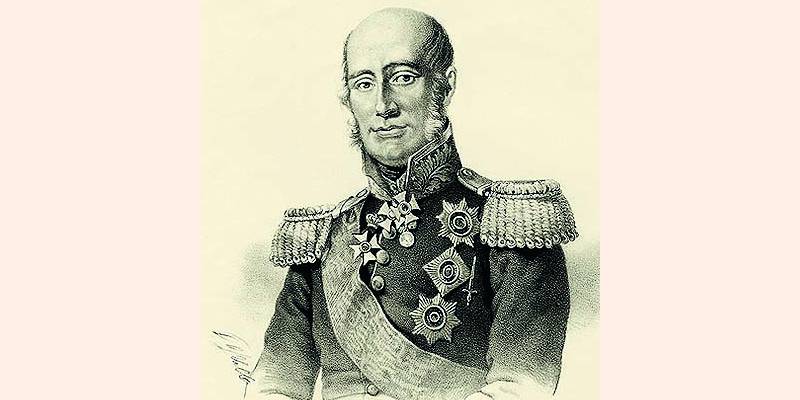
Mb Barclay de tolly
Since the establishment of the Military Ministry of the Russian Empire in 1802 and up to the overthrow of autocracy in February 1917, this department was led by 19 people, including such notable figures as Alexei Arakcheev, Mikhail Barclay de Tolly and Dmitry Milyutin.
The latter served as the minister the longest - as many 20 years, from 1861 to 1881 a year. Least of all - from January 3 to March 1 1917 of the year - the last military minister of Tsarist Russia, Mikhail Belyaev, was in this position.
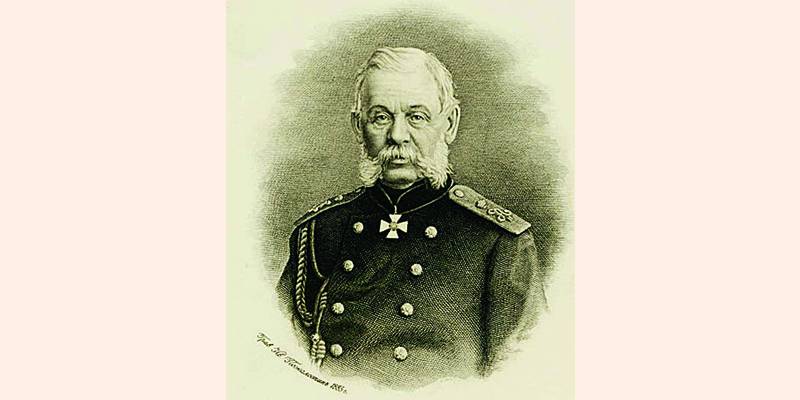
YES. Milyutin
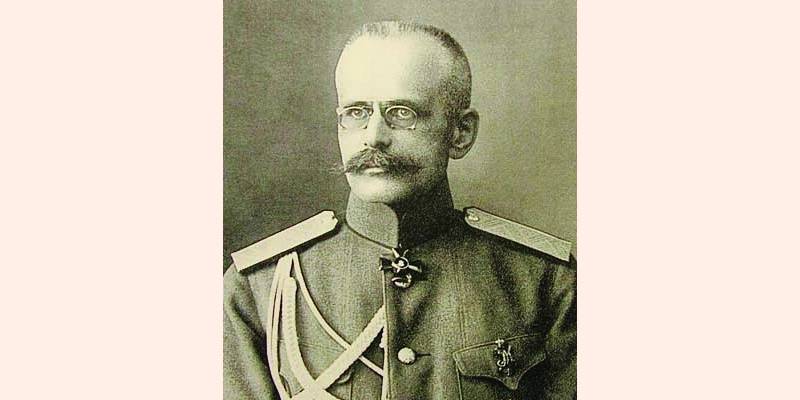
M.A. Belyaev
BATTLE FOR UNIVERSAL MILITARY TAUGHT
Not surprisingly, since the end of 1866, the rumor about the resignation of Milutin has become the most popular and debated. He was accused of destroying the army, glorious for its victories, for democratizing its order, which led to a drop in the authority of the officers and anarchy, and in enormous spending on the military department. It should be noted that the budget of the Ministry is valid only in 1863, it was exceeded by 35,5 million rubles. However, Milutin’s opponents suggested cutting back the sums allocated to the military department, so that it would have been necessary to cut the armed forces in half, completely ending recruitment kits. In response, the minister presented the calculations, from which it followed that France spends 183 rubles per year for each soldier, Prussia - 80, and Russia - 75 rubles. In other words, the Russian army turned out to be the cheapest of all the armies of the great powers.
The most important battles for Milutin were unfolded at the end of 1872 - the beginning of 1873, when the discussion of the draft Charter on universal military service was taking place. Opponents of this crown of military reforms were field marshals Alexander Baryatinsky and Fyodor Berg, the minister of public education, and from 1882, the minister of internal affairs Dmitry Tolstoy, the grand dukes Mikhail Nikolayevich and Nikolai Nikolaevich the Elder, generals Rostislav Fadeev and Mikhail Chernyaev and chief of gendarmes Peter Shuvalov. And behind them loomed the figure of the newly created German Empire, Heinrich Reuss, in St. Petersburg, who received instructions personally from Chancellor Otto von Bismarck. Reform antagonists, having obtained permission to get acquainted with the papers of the Military Ministry, regularly made notes full of lies that immediately appeared in the newspapers.
All-conscription conscription. Jews in one of the military presence in the west of Russia. Engraving by A. Zubchaninov from a drawing by G. Broling
The emperor in these battles took a wait-and-see attitude, not daring to take either side. He then established a commission to look for ways to reduce military spending under the chairmanship of Baryatinsky and supported the idea of replacing 14 military districts with armies, then leaning in favor of Milyutin, who argued that everything that was done in the army in 1860’s was either canceled to end. Maritime Minister Nikolai Krabbe told how the discussion of the issue of universal military service in the Council of State proceeded:
“Today, Dmitry Alekseevich was unrecognizable. He did not expect attacks, but he himself threw himself at the enemy, so much so that it was terribly stupid ... with his teeth in the throat and through the ridge. Quite a lion. Our old men parted frightened.
DURING MILITARY REFORMS, I MANAGED TO CREATE A BUILT ARMY MANAGEMENT SYSTEM AND PREPARATION OF THE OFFICER CASE, establish a new principle for its recruitment, re-equip the infantry and artillery
Finally, the 1 of January 1874 of the Charter of the All-Class Military Service was approved, and the highest rescript addressed to the Minister of War said:
“With your hard work in this matter and with an enlightened look on him, you have rendered the state a service, which I place myself in particular pleasure to testify and for which I express to you my sincere appreciation.”
Thus, in the course of military reforms, it was possible to create a coherent system of command and control of the army, establish a new principle for its recruitment, largely revive Suvorov’s tactical training methods for soldiers and officers, raise their cultural level, re-equip infantry and artillery.
TESTING WAR
The Russian-Turkish war of 1877 – 1878, Milutin and his antagonists, met with completely opposite feelings. The minister was worried because army reform was only gaining momentum and there was still much to be done. And his opponents hoped that the war would reveal the inconsistency of the reform and force the monarch to listen to their words.
In general, the events in the Balkans confirmed Milutin's rightness: the army with honor stood the test of war. For the minister himself, the siege of Plevna, or more precisely, what happened after the third unsuccessful assault on the fortress 30 of August 1877, became a genuine test of strength. The Commander-in-Chief of the Danube Army, Grand Duke Nikolai Nikolayevich the Elder, stunned by failure, decided to lift the siege from Plevna - a key point of the Turkish defense in Northern Bulgaria - and withdraw the troops beyond the Danube.
Presentation of the captive Osman Pasha, Alexander II in Pleven. Hood N. Dmitriev-Orenburg. 1887. Among the highest military officials of Russia is depicted Minister DA Milyutin (extreme right)
Milyutin objected to such a step, explaining that reinforcements should soon approach the Russian army, and the position of the Turks in Pleven was far from brilliant. But to his objections the grand duke replied irritably:
"If you consider it possible, then take command over yourself, and I ask you to fire me."
It is difficult to say how events would have developed further if Alexander II had not been present at the theater of military operations. He listened to the minister's arguments, and after the siege, organized by the hero of Sevastopol, General Edward Totleben, 28 in November 1877, Pleven fell. Addressing the retinue, the sovereign then announced:
“Know, gentlemen, that today and the fact that we are here, we are obliged to Dmitry Alekseevich: he alone at the military council after 30 of August insisted not to back down from Pleven.”
The Minister of War was awarded the Order of St. George of the II degree, which was an exceptional case, since he had neither the III nor the IV degree of this order. Milyutin was elevated to count dignity, but the most important thing was that after the Berlin Congress, which was tragic for Russia, he became not just one of the closest ministers to the Tsar, but also the de facto head of the foreign affairs agency. Comrade (deputy) of the Minister of Foreign Affairs Nikolai Girs from now on coordinated with him all the fundamental issues. The long-time foe of our hero, Bismarck, wrote to the German Emperor Wilhelm I:
"The minister, who now has a decisive influence on Alexander II, is Milutin."
The German emperor even asked the Russian counterpart to remove Milyutin from the post of minister of war. Alexander replied that he would be happy to fulfill the request, but at the same time he would appoint Dmitry Alekseevich to the post of foreign minister. Berlin hurried to refuse his offer. At the end of 1879, Milutin took an active part in the negotiations on the conclusion of the “Union of Three Emperors” (Russia, Austria-Hungary, Germany). The war minister advocated active policy of the Russian Empire in Central Asia, advised to switch from the support of Alexander Battenberg in Bulgaria, preferring Montenegrin Bozidar Petrovich.
WHAT TO READ?

ZAKHAROVA L.G. Dmitry Alekseevich Milyutin, his time and his memoirs // Milutin DA. Memories. 1816 – 1843. M., 1997.
***
PETELIN V.V. The life of Count Dmitry Milutin. M., 2011.
AFTER REFORM
At the same time, in the 1879 year, Milyutin boldly stated: “It must be admitted that our entire state structure requires a fundamental reform from top to bottom.” He strongly supported the actions of Mikhail Loris-Melikov (by the way, Milyutin proposed the candidacy of the general for the post of All-Russian dictator), which envisaged a reduction in the redemption payments of the peasants, the abolition of the Third Division, the expansion of the competence of the Zemstvos and city councils, the establishment of general representation in the highest authorities. However, the time for reform was coming to an end. 8 March 1881, a week after the people killed the emperor, Milyutin gave the last battle to the conservatives who opposed the “constitutional” project of Loris-Melikov approved by Alexander II. And this battle was lost: according to Alexander III, the country did not need reforms, but to calm ...
“It’s impossible not to acknowledge that our entire state structure requires a radical reform from top to bottom.”
21 of May of the same year Milyutin retired, rejecting the proposal of the new monarch to become governor of the Caucasus. Then such an entry appeared in his diary:
"In the present course of affairs, with the current leaders in the higher government, my position in Petersburg, even as a simple, irresponsible witness, would be unbearable and humiliating."
Upon retirement, Dmitry Alekseevich received as a gift portraits of Alexander II and Alexander III, sprinkled with diamonds, and in 1904 the same portraits of Nicholas I and Nicholas II. Milyutin was awarded all Russian orders, including the diamond signs of the Order of St. Andrew the First-Called, and in 1898, during the celebrations in honor of the opening of the monument to Alexander II in Moscow, he was promoted to field marshal general. Living in the Crimea, in the Simeiz estate, he remained true to his old motto:
“It is not necessary to rest at all, doing nothing. You only need to change jobs, and this is enough. "
In Simeiz, Dmitry Alekseevich streamlined the diary entries that were kept from 1873 to 1899 year, wrote wonderful multi-volume memories. He closely followed the course of the Russo-Japanese War, and the events of the First Russian Revolution.
He lived for a long time. Fate supposedly rewarded him for not giving him to his brothers, because Alexei Alekseevich Milyutin died 10 years old, Vladimir - in 29, Nikolai - in 53, Boris, in 55 years. Dmitry Alekseevich died in the Crimea in the 96 year of life, three days after the death of his wife. He was buried at the Novodevichy cemetery in Moscow next to his brother Nikolai. In Soviet times, the burial place of the last field marshal of the empire was lost ...
Almost all of his fortune Dmitry Milutin left the army, gave the rich library of his native Military Academy, and bequeathed the estate in the Crimea to the Russian Red Cross.
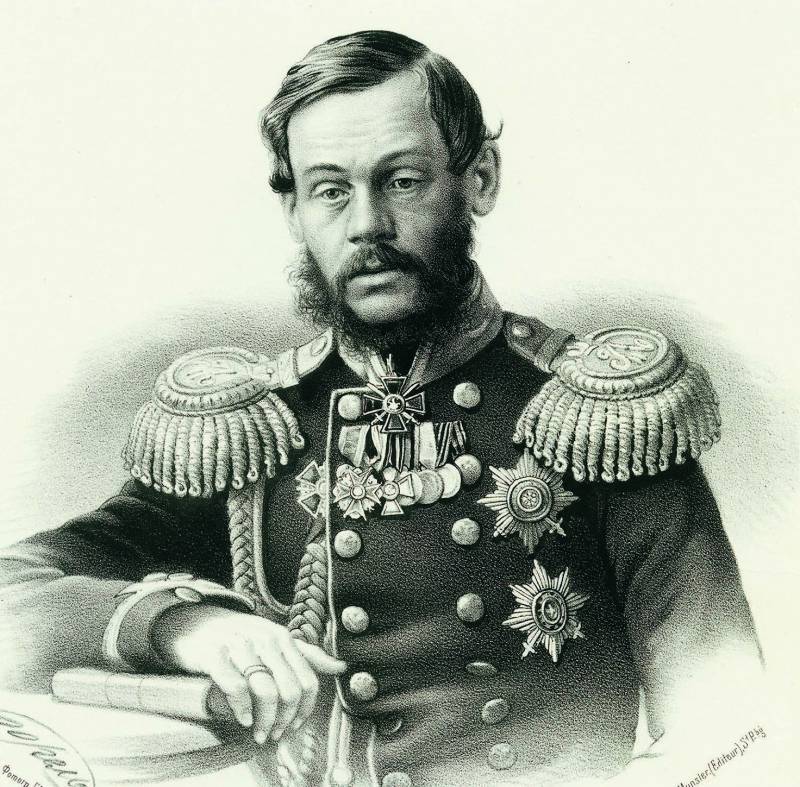
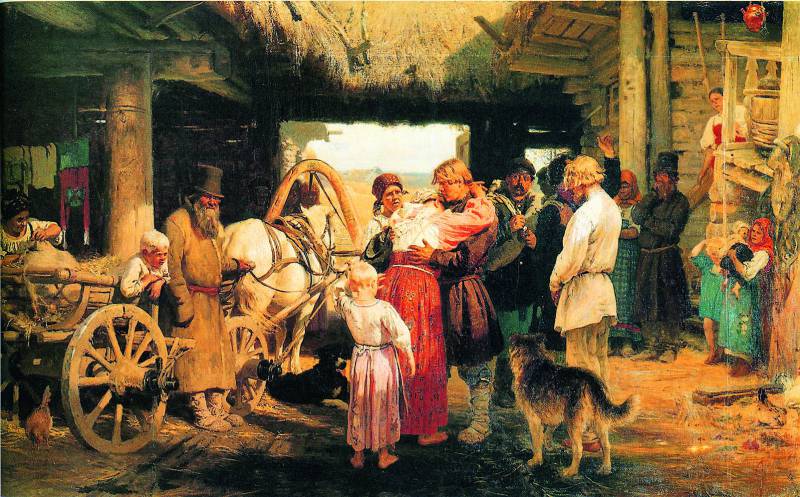
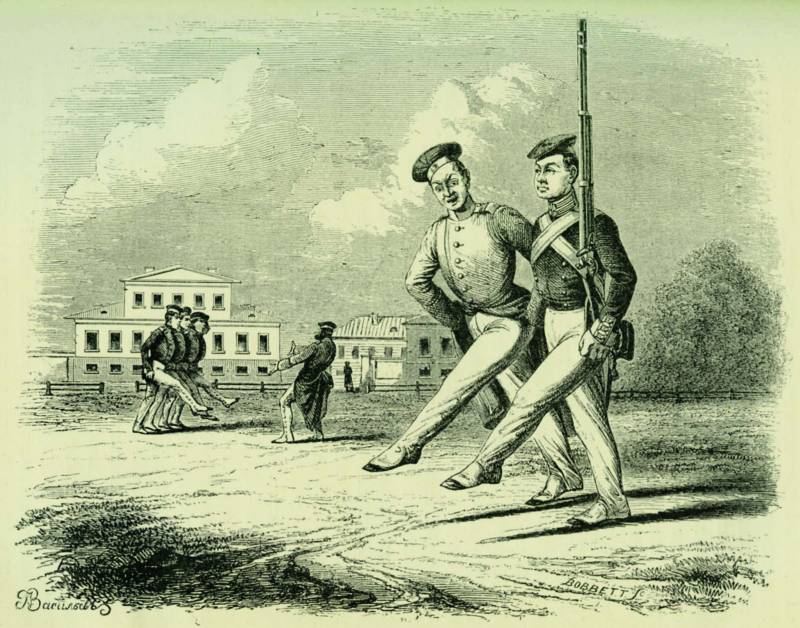
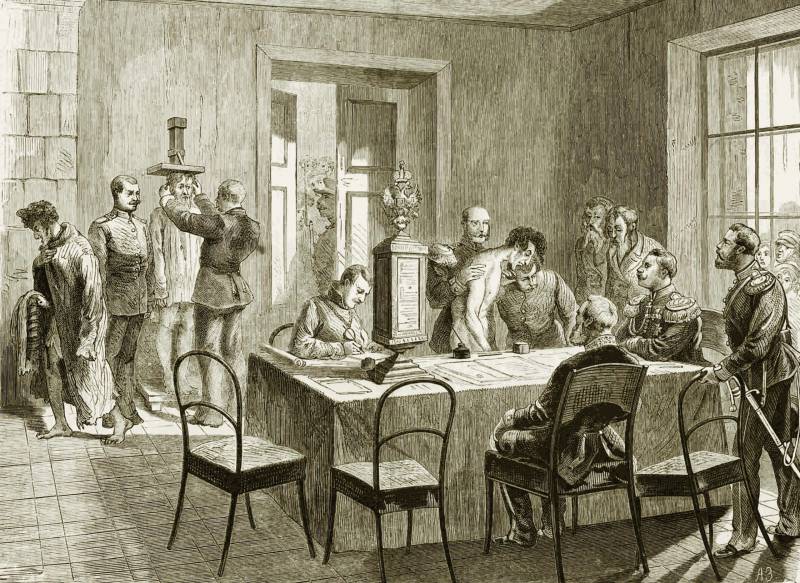
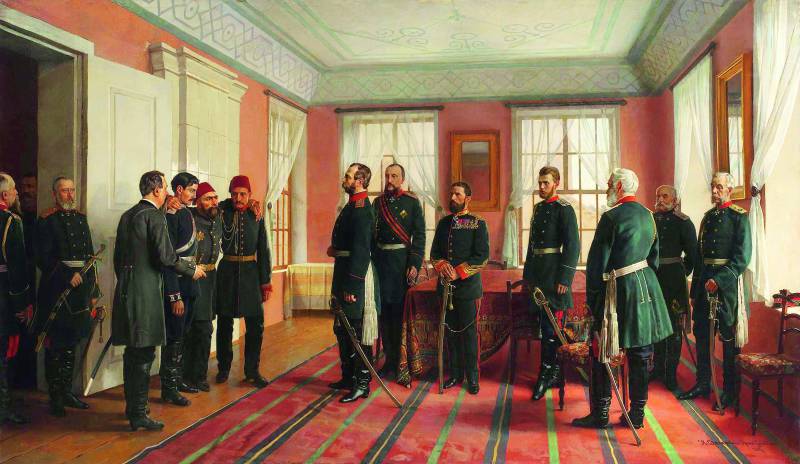
Information